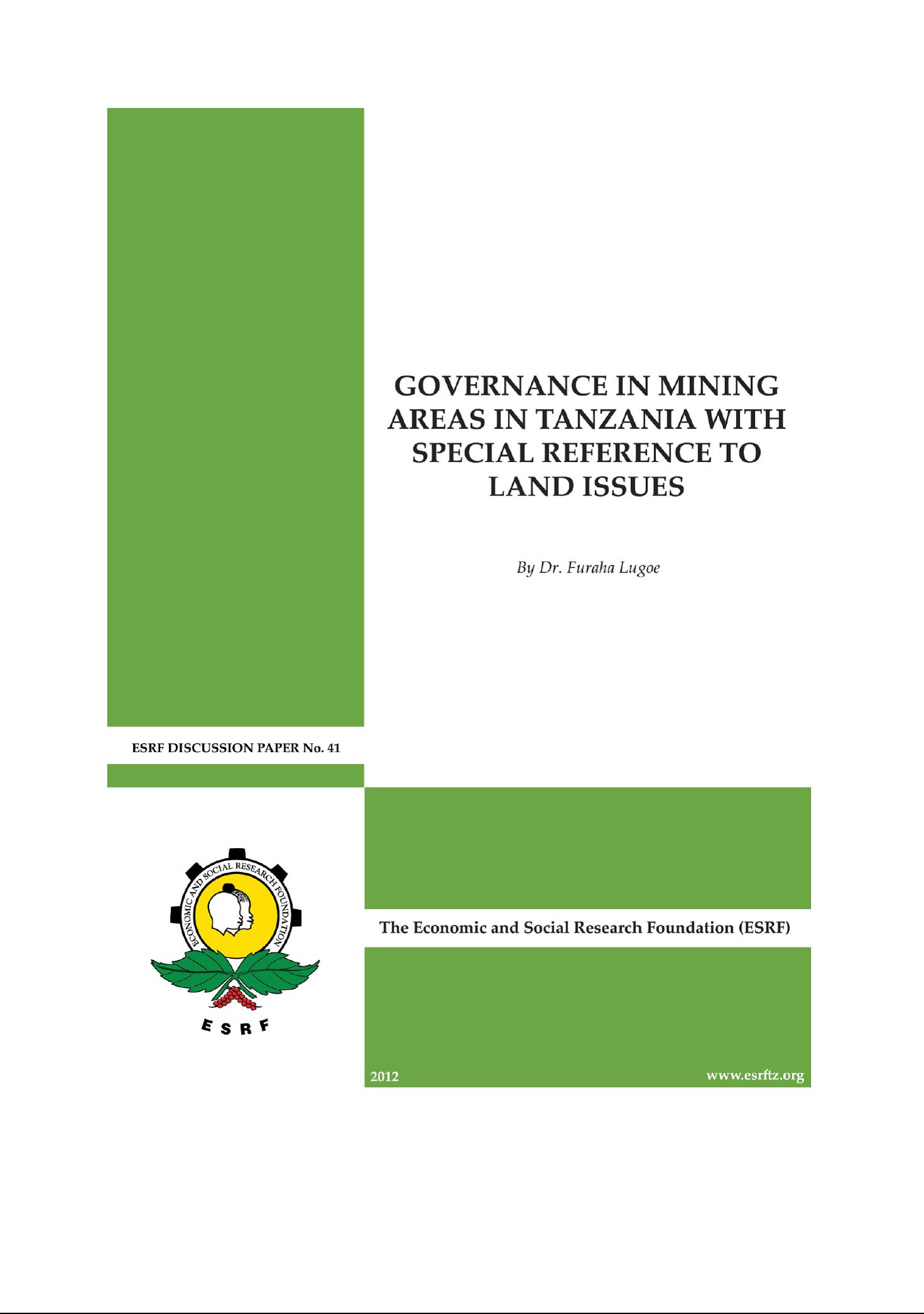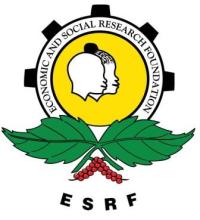Resource information
The economies of many countries such as the Gulf and Southern African States are to a considerable extent sustained by financial flows from extraction of mineral resources and fossil fuels. The discovery of such fortunes, in sufficiently viable quantities, can be a significant national blessing for effectively addressing development challenges. However, experience in other countries has shown that financial resources obtainable from mineral and fossil fuel extraction – the Extractive Industry, have not always assisted economic and social development. On the contrary, they have adversely affected political and hence socioeconomic stability in some countries.
This paper examines the situation with gold mining in Tanzania. It notes that gold mining has had its ups and downs due to governance related issues. The paper asserts that policies and mind sets of the post independence era severely constrained investment in mineral exploration and extraction, resulting in the closure of existing mines without new openings for over 20 years. The paper also highlights the reality that a paradigm shift in favour of economic recovery and investment promotion has taken place, with artisanal and small miners (ASM) rejuvenating the mining of gold and Tanzanite in the 1980s and being joined by large scale miners (LSM) since 1998. The ugly experience of mining worldwide and on the continent has also been reflected in Tanzania. Significant disputes and conflicts have surfaced among mining industry stakeholders consisting of ASM, LSM, host communities and community based organizations, as well as local and central government authorities. The review of this paper includes an argument that the conflicts experienced in the mining industry in Tanzania, which have largely surfaced more acutely with respect to land use, cannot be wholly removed without hurting production. They may be mitigated to the level of stakeholder co-existence, though this may not be that easy due to differing interests of the stakeholders. Nonetheless, an attempt should be made, with the entry point at aligning the various policies and laws, and creating a suitable framework that links all sectors related to mineral exploration and extraction. All stakeholders will be losers if gold production ceases. In the same vein, all are jointly winners if production is made profitable in the common interest of everybody.


